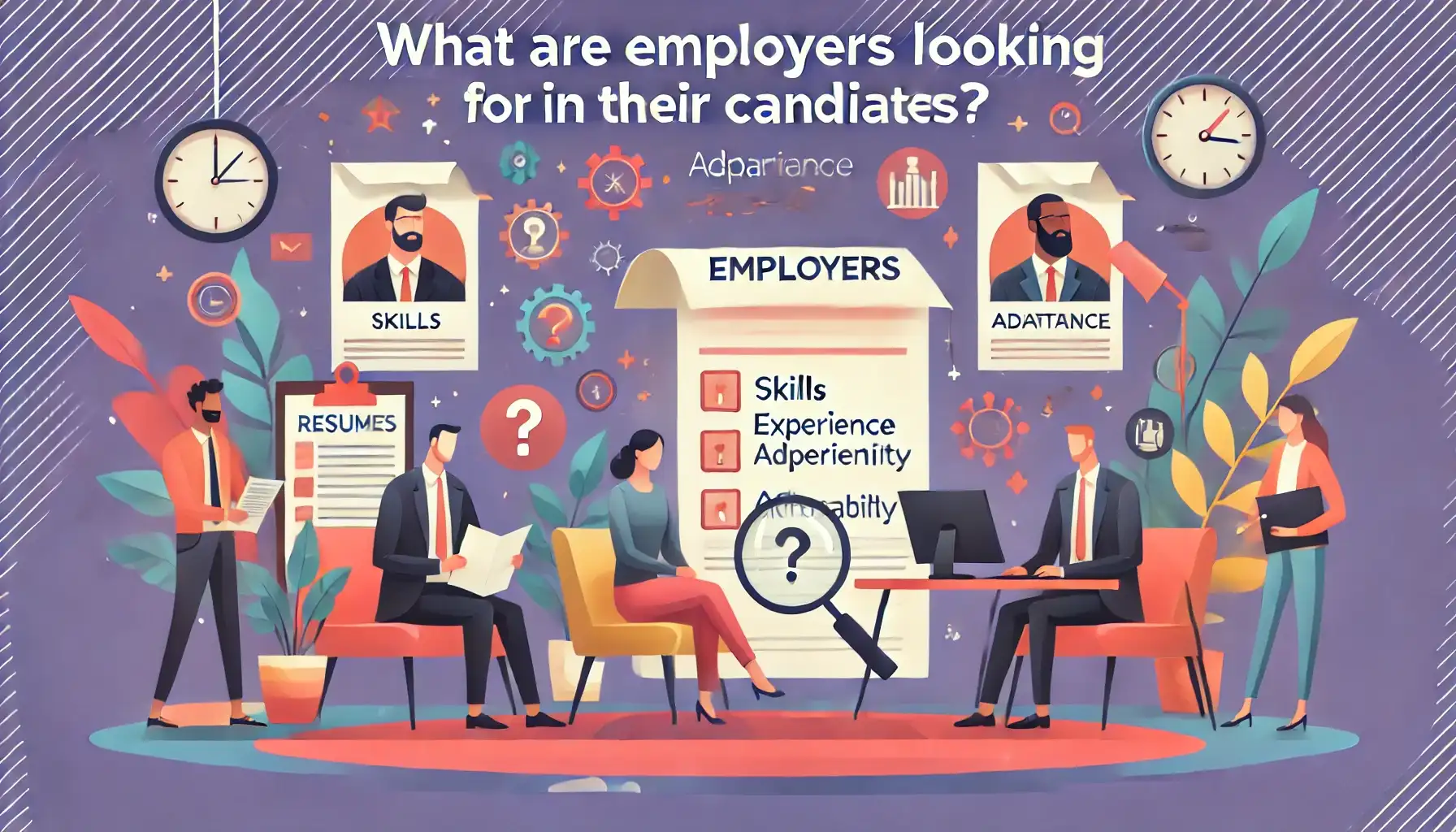
In the ever-evolving job market, understanding what employers seek in potential candidates is crucial for job seekers aiming to stand out. While specific requirements may vary by industry and role, certain core attributes and skills are universally valued. This post delves into the key qualities that employers look for in their candidates, providing insights to help you enhance your employability and career prospects.
1. Relevant Skills and Experience
One of the primary criteria for employers is whether a candidate possesses the necessary skills and experience relevant to the job. This includes both hard skills—technical abilities specific to the job—and soft skills, which are interpersonal and often transferable across various roles.
Hard Skills:
- Technical Proficiency: Depending on the job, this might include proficiency in software, programming languages, or specific tools and equipment.
- Industry-Specific Knowledge: Understanding industry standards, regulations, and best practices is crucial for many roles.
Soft Skills:
- Communication: The ability to articulate ideas clearly and effectively, both in writing and verbally.
- Problem-Solving: The capacity to analyze issues, think critically, and develop effective solutions.
- Teamwork: The ability to work well with others, demonstrating collaboration and mutual support.
2. Adaptability and Flexibility
In today’s fast-paced work environment, the ability to adapt to change is highly valued. Employers look for candidates who can navigate new challenges, embrace change, and remain flexible in their approach.
- Learning Agility: The willingness and ability to learn new skills and adapt to new situations quickly.
- Open-Mindedness: Being receptive to new ideas and diverse perspectives.
- Resilience: The ability to cope with setbacks and bounce back from difficulties.
3. Cultural Fit and Values Alignment
Employers often seek candidates whose values align with the company’s culture and mission. A good cultural fit can enhance teamwork, employee satisfaction, and overall productivity.
- Shared Values: Alignment with the company’s core values and ethics.
- Cultural Adaptability: The ability to thrive in the company’s work environment and contribute positively to its culture.
- Team Integration: The potential to integrate well with existing teams and contribute to a harmonious workplace.
4. Initiative and Proactivity
Proactive candidates who demonstrate initiative are highly attractive to employers. These individuals show that they can identify opportunities, take action, and contribute to the company’s goals without needing constant direction.
- Self-Motivation: A strong internal drive to achieve goals and meet deadlines.
- Entrepreneurial Spirit: The ability to think creatively, take risks, and drive innovation.
- Ownership: Taking responsibility for one’s work and being accountable for results.
5. Strong Work Ethic
A robust work ethic is a key indicator of a candidate’s reliability and dedication. Employers value individuals who demonstrate commitment, perseverance, and a positive attitude toward their work.
- Dependability: Consistently meeting deadlines and maintaining high-quality work.
- Dedication: A commitment to the company’s mission and a willingness to go the extra mile.
- Professionalism: Conducting oneself with integrity, respect, and a positive attitude.
6. Leadership Potential
Even for non-leadership roles, employers often seek candidates with leadership potential. These individuals can inspire others, drive team success, and potentially step into leadership roles in the future.
- Vision: The ability to see the big picture and set strategic goals.
- Influence: The capacity to inspire and motivate others.
- Decision-Making: Confidence in making informed decisions and taking responsibility for outcomes.
7. Continuous Improvement Mindset
A mindset geared toward continuous improvement is crucial in a rapidly changing job market. Employers value candidates who are committed to personal and professional growth.
- Lifelong Learning: A commitment to ongoing education and skill development.
- Feedback Receptivity: The ability to accept constructive criticism and use it to improve performance.
- Innovation: A willingness to experiment and explore new ways to improve processes and outcomes.
8. Effective Networking and Relationship-Building
Building strong professional relationships and a network of contacts is increasingly important. Employers appreciate candidates who can effectively network and build beneficial relationships both inside and outside the company.
- Relationship Management: The ability to develop and maintain positive relationships with colleagues, clients, and stakeholders.
- Networking Skills: Proactively building a network of professional contacts.
- Collaboration: Working effectively with others to achieve common goals.
Conclusion
Understanding what employers are looking for in their candidates can significantly enhance your job search and career development efforts. By focusing on developing relevant skills, demonstrating adaptability, aligning with company values, showing initiative, maintaining a strong work ethic, exhibiting leadership potential, committing to continuous improvement, and building effective networks, you can position yourself as a highly desirable candidate in today’s competitive job market.
For more career advice, job opportunities, and resources to help you succeed, visit dubaijobzone.com. We are dedicated to supporting your professional journey and helping you achieve your career goals
